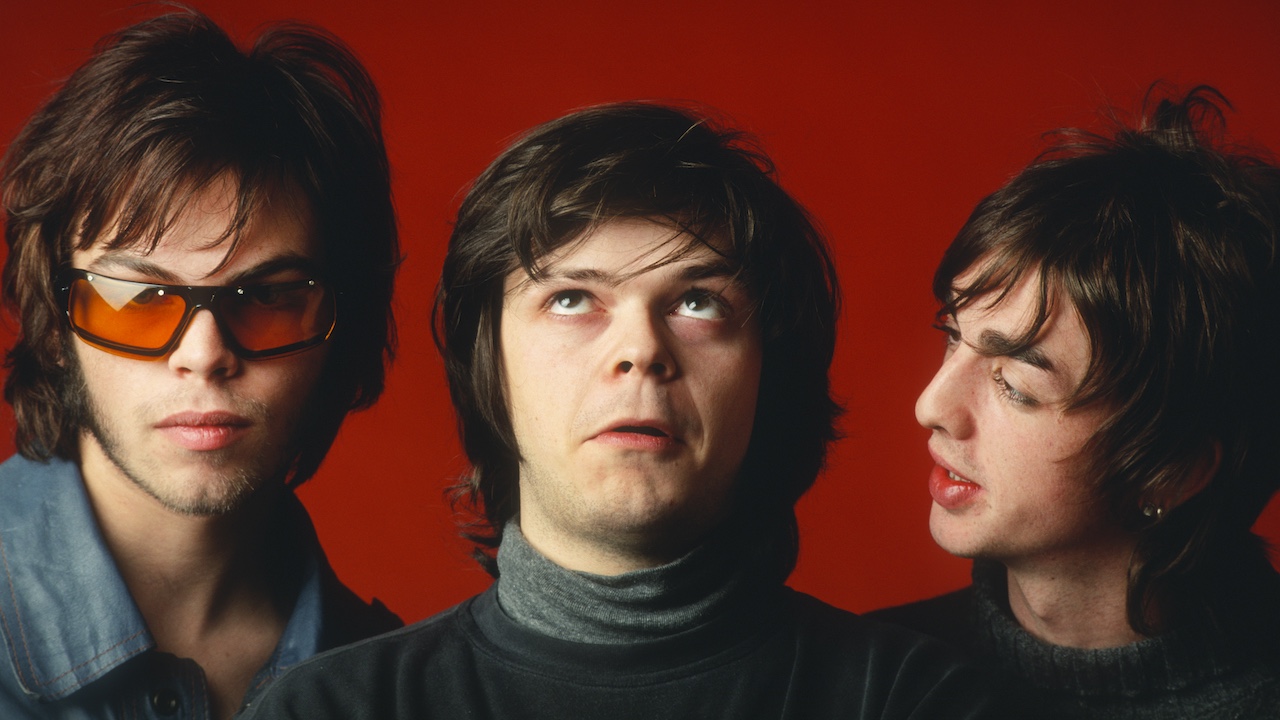“It was a great antidote to American earnest rock bands who seemed to think it was all about them”: Supergrass on the making of their timeless Britpop classic I Should Coco

When they emerged in the mid-90s, Supergrass were the most effervescent of British guitar bands. The Oxford trio (and later quartet) were stacked to the pearly whites with fizzy, playful indie anthems. Their music was 60s pop in a punk hurry, a hurtling rush of indelible anthems being played like someone was about to call last orders. Perhaps that’s because that’s how guitarist and vocalist Gaz Coombes, bassist Mick Quinn and drummer Danny Goffey actually wrote many of their early songs, bouncing mischievously from pub to party to pub on the outskirts of Oxford, making up songs about the characters they would encounter, songs that within a year or two would become huge, era-defining hits.
“A few were written just on our way out to the pub in the village, picking up an acoustic as we were going out the door. They all came about like that, without trying to force the issue,” Coombes told this writer a few years ago. “We weren’t trying to think, ‘We’re gonna be this incredible band…’, we were in our own little mad world writing mad songs.”
Two-thirds of the band were still in their teens at the point that their classic debut I Should Coco was released. The album turns 30 next month but it has lost none of its juvenile, feverish charm. There isn’t another 90s record that captures the heady thrills of being in your late teens as perfectly as I Should Coco, a record that, to paraphrase the timeless, bounding Alright, sounds like it’s been made by three people who firmly believe they are gonna be young and run free forever.
When Coombes thinks back to that time, he remembers pinballing about the place with a youthful get up and go. “It was going out and scoring and getting some hash and going to pubs and hanging with either posh students or really dodgy dealers,” he said. “We were just hoping to make a record or get signed.”
It quickly became evident that there was a very strong possibility that their ambitions would be realised. Originally calling themselves Theodore Supergrass and then just Supergrass, they soon became a big local draw in their hometown. One hectic show at the now-closed venue Jericho Tavern had Coombes thinking they were onto something. “It was full and everyone went fucking mental,” he recalled. “I think I knew then. The way that it was and the vibe that it was, it wasn’t just ‘Local band come good’. I remember that intake of breath, like, ‘Fuck, this is it’. The rest of it… it’s like you don’t notice your kids growing up. I wish I’d kept notes of things. I can think about it when I’m old and I need to bask in some warmth. I don’t need to do that now.”
Signing to Parlophone and putting out a run of fantastic singles including Caught By The Fuzz (about Gaz getting arrested) and the galloping Mansize Rooster, they got down to work on their first full-length at Cornwall’s Sawmill Studios.
“The recording of it was amazing, that whole time down at Sawmills,” remembered Coombes. “I thought it was magical, just what we wanted and what we were ready for. We were still able to be close friends as well, to talk about music or play FIFA 95 on the Mega Drive or make loads of little joints and go out on a boat with an acoustic guitar. It was all really perfect in terms of what we wanted to do, which was make some mad songs and be together.”
By the time I Should Coco was released in mid-May 1995, an army of diehards had climbed on board. It went to Number One in the UK charts and stayed there for three weeks, going on to sell over a million copies. “It happened really quickly,” said bassist Quinn. “We didn’t have any scope for where it could go, then we toured round the States and Alright came out and we realised how big it had become.”
From the outside, the transition from local heroes to chart-toppers seemed meteoric, but drummer Goffey said they took it in their stride. “Eight months is a long time when you’re a teenager,” he reasoned. ”We probably had these subconscious goals but not in a contrived way. It was probably, ‘Imagine playing at Jericho Tavern!’, and we did that. Then it would be, ‘Imagine having a tour bus!’ and sort of thing. But we didn’t sit around thinking about it. I think it was in the back of our head, ‘What’s the next really mental thing we could do?’ Even making a video was brilliant. We were constantly filming with little video cameras. That whole feeling of creating new stuff was always on the cards.”
It was a playful approach to making things and filming themselves – you could call them content trailblazers – that they injected into their most classic and well-known video clip, the sunny, Monkees-esque promo made to accompany Alright. “We were just being ourselves,” said Coombes. “We were irreverent and cheeky. We had that energy. It’s how we looked. When we went to Japan, Japanese fans were doing cartoon drawings of us. The whole cartoon thing seemed to fit with being a little three-piece young band… It was a great antidote to American earnest rock bands who seemed to think it was all about them and that seriousness so we fought against that.”
It’s that spirit of anything-goes adventure that ensures I Should Coco remains a scintillating listen three decades on. Supergrass got off to an absolute flier.
